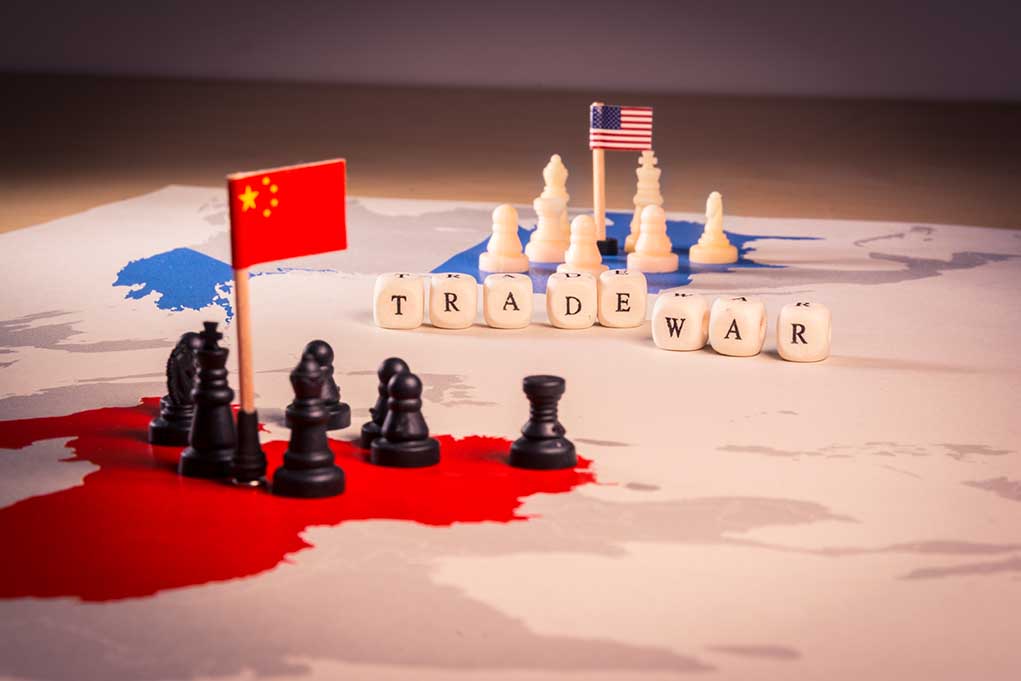
China confirms upcoming trade negotiations with the United States in Switzerland, setting the stage for critical discussions that could reshape the economic relationship between the world’s two largest economies.
Key Takeaways
- Trade talks between US and China will take place in Switzerland at the request of the United States, focusing primarily on tariff reductions.
- Current tariff levels are exceptionally high, with US tariffs at 145% and Chinese tariffs at 125%, creating pressure for both sides to find a resolution.
- China insists negotiations must be based on “equality, respect, and mutual benefit” while rejecting coercive tactics.
- Treasury Secretary Scott Bessent emphasized that “deescalation” must occur before substantive progress can be made in formal negotiations.
- Experts warn against excessive optimism, suggesting any comprehensive deal will require lengthy negotiations despite market hopes for quick results.
Meeting Details and Immediate Objectives
Senior officials from both nations will gather in Switzerland for what many view as preliminary discussions to ease trade tensions. US Treasury Secretary Scott Bessent and US Trade Representative will meet with the Chinese Vice Premier in an effort to address the complicated economic relationship. Chinese officials have confirmed the talks are happening at America’s request, signaling Beijing’s willingness to engage while maintaining its established positions on tariffs and negotiation terms.
The immediate focus appears to be on reducing the exceptionally high tariffs currently in place. US tariffs stand at approximately 145% while Chinese tariffs hover around 125%, creating significant economic strain for businesses and consumers in both countries. Analysts suggest immediate tariff reduction could help stave off recessionary pressures while establishing grounds for more comprehensive negotiations on broader economic issues.
🇨🇳🇺🇸 Tariff talks back on track
China has agreed to engage with the U.S. on tariff issues after Washington signaled possible policy adjustments and reached out through multiple channels, a Ministry of Commerce spokesperson said Wednesday.
Chinese Vice Premier He Lifeng is set… pic.twitter.com/s6V2LelRW6
— Yawen Xu (@YawenXu17) May 7, 2025
China’s Negotiating Position
Chinese officials have made it clear they come to the table with specific expectations about how discussions should proceed. A spokesperson for China’s Foreign Ministry emphasized that China remains open to dialogue but with important conditions. China’s consistent position is that negotiations must proceed from a place of equality rather than pressure tactics, suggesting Beijing will resist any appearance of yielding to American demands without reciprocal concessions.
Chinese officials have explicitly stated that “pressure or coercion will not be effective in negotiations.”. The statement reflects China’s growing economic confidence and indicates that Beijing views itself as an equal partner rather than a subordinate in trade discussions. This posture will likely influence the pace and tone of the upcoming talks.
American Perspective and Realistic Expectations
Treasury Secretary Scott Bessent has set modest initial expectations for the Switzerland meetings, characterizing them as an opportunity to deescalate tensions rather than produce immediate comprehensive agreements. His comments suggest the Trump administration recognizes the complexity of U.S.-China trade issues and is taking a measured approach to rebuilding the economic relationship.
American officials have also noted the possibility of a partial decoupling with China, focusing on strategic industries while maintaining trade in non-sensitive sectors. This nuanced position reflects evolving American thinking about the U.S.-China economic relationship, moving away from total integration while avoiding complete separation. Bessent’s comments indicate that protecting key industries remains a priority even as both sides seek tariff relief.
Market and Expert Reactions
Financial markets have responded with cautious optimism to news of the talks, though experts warn against expecting rapid breakthroughs. Both nations face domestic economic pressures that make some form of agreement desirable, yet the complex nature of the issues suggests that comprehensive solutions remain distant. Analysts note that while immediate tariff reductions might be achievable, addressing deeper structural issues will require sustained engagement.
“Investors shouldn’t mistake China engagement with China deals,” warned Terry Haines of Pangaea Policy.
President Trump has added another dimension to the discussions with statements suggesting America could proceed without a deal, claiming the U.S. is not disadvantaged by reduced trade with China. This perspective potentially influences negotiating dynamics, as Chinese officials must consider the possibility of future policy shifts depending on American electoral outcomes. The Switzerland talks thus occur against a backdrop of current economic tensions and potential future uncertainties.




